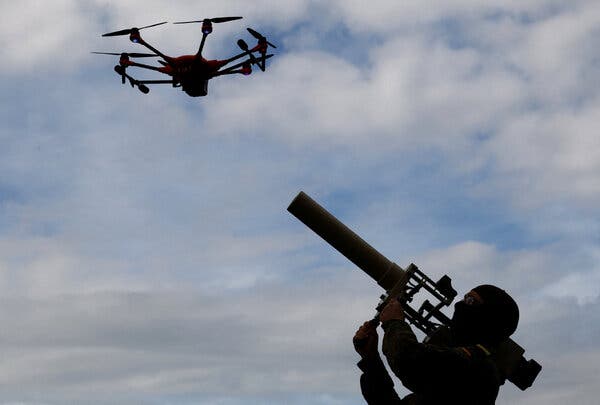The European Union (EU) is initiating the establishment of a “drone wall,” a defense strategy designed to protect its eastern borders from unmanned aerial vehicles (UAVs) originating from Russia. This move comes in response to a series of recent drone incidents that have raised security concerns across the region. As EU leaders convene in Copenhagen on March 15, 2024, to discuss essential matters of trade and defense, the proposal for the drone wall is expected to be a focal point of the discussions.
The suggestion for this defensive measure was first introduced by Ursula von der Leyen, the President of the European Commission, during her annual state of the union address last month. The urgency of the proposal was underscored by a significant event on the same day when Russian drones entered Polish airspace. Subsequent incursions were reported in Romania and Estonia, further emphasizing the necessity for immediate action.
In preparation for the defense initiative, a planning call was conducted last week. Representatives from nations bordering Russia, including Bulgaria, Estonia, Hungary, Latvia, Lithuania, Romania, Poland, Slovakia, and Finland, participated in the discussions. Denmark, which currently holds the EU presidency, was also involved.
“We need to act now — Europe must deliver a strong and united response to Russia’s drone incursions at our borders,” von der Leyen stated. “That is why we will propose immediate actions to create the drone wall.” The leaders’ commitment to this initiative indicates a robust approach to addressing security threats in the region.
As the situation continues to evolve, the EU’s drone wall concept aims not only to deter potential incursions but also to reinforce the collective defense strategy among member states. The upcoming discussions in Copenhagen are expected to outline specific steps for implementation and funding of this initiative, reflecting the bloc’s resolve to enhance its security infrastructure in light of recent events.
Given the geopolitical landscape, the establishment of a drone wall will likely become a key element in the EU’s broader defense strategy, potentially involving advanced technologies and cooperative frameworks among member countries. The implications of this initiative may extend beyond immediate border security, shaping the future of European defense collaboration in the face of ongoing challenges.





































































